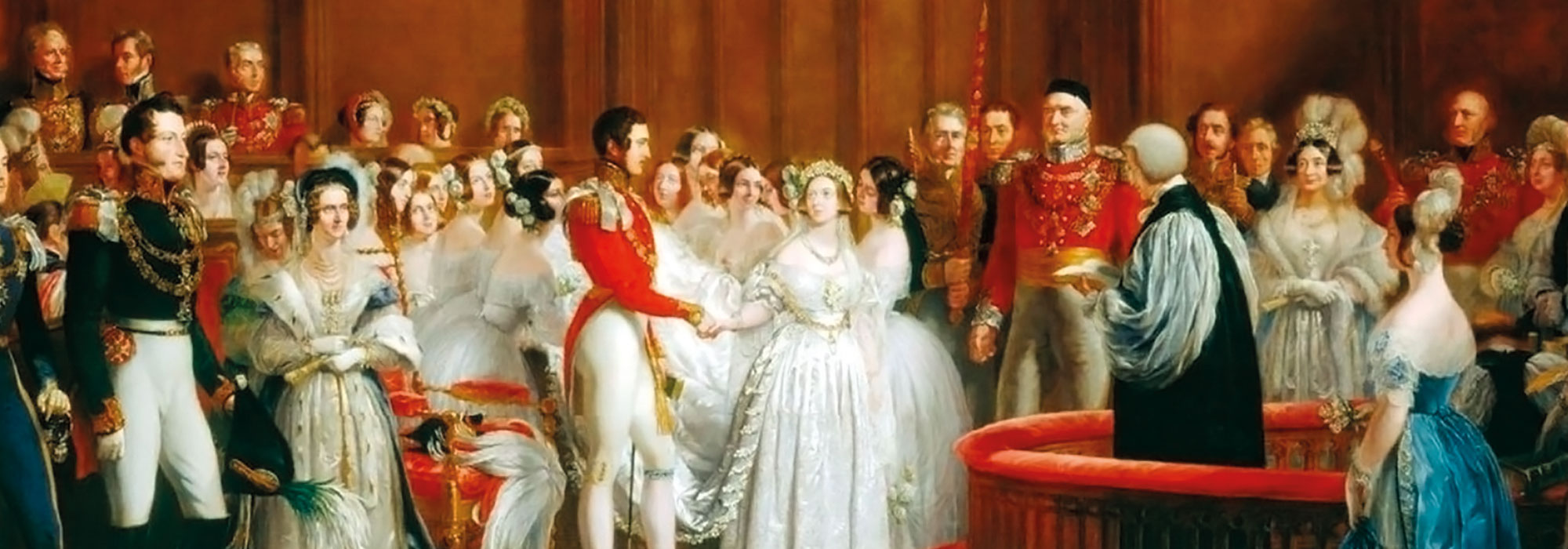
“Again I hail this blessed day, which has given me, the dearest, best, & purest of beings, who is a blessing not only to me, but also to this land, for without him what should I & the country have done!”
An excerpt from Queen Victoria’s journals, 26 August 1854 (Prince Albert’s birthday)
In 2019 we are celebrating the life and legacy of Queen Victoria, but these celebrations would not be complete if we did not honour the pioneering prince who stood at her side. The 200th anniversary of Prince Albert’s birth falls in the same year as his wife’s and it is only fitting that The Royal Mint marks the occasion. On 26 August 2019 we will be striking a limited number of Sovereigns featuring a special privy mark, paying tribute to a man who helped shape the nation.
On 24 May 1819, a young princess was born at Kensington Palace in London who would grow up to become Queen Victoria. Just a few months later, on 26 August 1819, the ducal Saxe-Coburg-Gotha family welcomed Prince Franz August Karl Albert Emanuel. The fates of these babies would be forever entwined. Victoria and Albert first met in 1836, before falling in love and marrying in 1840. In 2019, we celebrate the 200th birthdays of the royal couple.
Prince Albert was an accomplished young man with a broad education, having studied at the University of Bonn. He, like many high-society men of his time, undertook a grand tour of Italy, developing his interests and talents in art, science and music. When he married, he didn’t become king, but the support and advice he gave to his wife as Prince Consort were invaluable to the young queen and to the progress made in the Victorian era. The couple had a very happy marriage, with nine children together and with the queen frequently indisposed by pregnancy, Prince Albert helped with matters of state and political duties – their desks even sat side by side.
As an enlightened man with a strong sense of duty, Prince Albert was never afraid to fight for the things he believed in. He was a humanitarian and pioneer of social change, campaigning against the slave trade and child labour, and championed cleaner water for the people of London. He was made Chancellor of Cambridge University in 1847, driving the great institution to broaden the curriculum. Perhaps one of his proudest achievements, as a supporter of ‘the best of British’, he brought his experience in art, science, trade and industry to bear in the Great Exhibition of 1851.
Albert threw himself into his work with such passion that it is believed he often over-exerted himself. This may have been a contributing factor to his death from typhoid in 1861, his beloved and heartbroken family at his side.
“Can I write this blessed date, & beloved Albert not be here with us?! ... Last year on this precious day, we were in Ireland. Oh! The terrible terrible contrast! … Oh! the anguish & misery of my desolation, without my beloved one!
An excerpt from Queen Victoria’s journals, 26 August 1862
He left behind a lasting legacy, from improved conditions for the people of Britain and beyond to educational reform, scientific progress, musical enlightenment and advancement in the arts. He ordered and catalogued the Royal Collection and he also pioneered agricultural improvements. The museums of South Kensington were funded with the proceeds of the Great Exhibition, and he also founded Imperial College London, the first university in Britain dedicated to scientific research.
Their joint influence on the era was remarkable and Victoria and Albert’s lasting legacies are as intertwined as their lives. On 26 August 2019, 200 years from the day of Prince Albert
Discover great stories from history and how we're celebrating these moments within The Royal Mint
Read more
